Search
 News
News
Algorithm Improves Blood Sugar Control in Hospitalized Patients
Controlling blood sugar in the hospital setting is challenging for a variety of reasons including inconsistent caloric intake, changes in kidney and liver function, surgery, infections, and limitations in labor-intensive glucose monitoring and insulin administration.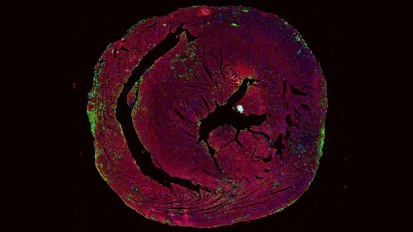 News
News
Research Leads to New Myocarditis Diagnostic and Treatment Strategies
Research conducted by Javid Moslehi, MD, chief of the UCSF Cardio-Oncology and Immunology Program, has led to the discovery of a new form of myocarditis caused by immune checkpoint inhibitors (ICI). News
News
Assessing Severe Surgical Complications from Cesarean Deliveries
New UCSF research offers hospitals a way to track and ultimately reduce the risks of surgical complications. Document
Document
Electrophysiology and Arrhythmia Program
The UCSF Cardiac Electrophysiology and Arrhythmia Service is known worldwide for expert evaluation and treatment of patients with a variety of heart rhythm disorders. Video
Video
Current Menopause Care: Understanding and Explaining a Patient’s Options
Gynecologist Mindy Goldman, MD, offers keys to individualizing care in menopause and beyond by looking at factors ranging from family history to having undergone hysterectomy. Document
Document
UCSF Liver Transplant Program
With high patient volumes and outstanding survival rates, UCSF Health is a leader in liver transplantation News
News
How Many People Have A-Fib? Three Times More Than We Thought
Atrial fibrillation, a rapid, irregular heartbeat that can lead to stroke or sudden death, is three times more common than previously thought, affecting nearly 5% of the population, or 10.5 million U.S. adults, according to new estimates from UC San Francisco. Video
Video
Contraceptive Counseling: Simple Techniques for Complicated Patients
With rates of both chronic illness and maternal mortality rising in the U.S., reproductive planning is an essential part of primary care. Offering a variety of approaches to these discussions, OB-GYN Tania Basu Serna, MD, MPH, breaks down contraceptive options and explains how to help individuals make the best choices for their lives. Video
Video
Gender-Affirming Health Care
Addressing the needs of gender-expansive patients is basic health care, yet many PCPs aren’t sure where to begin. Video
Video
A Common Threat to Life and Limb: Detect and Manage Peripheral Artery Disease
Michael S. Conte, MD, UCSF’s chief of vascular surgery, discusses the growing problem of PAD, subtleties of PAD signs, useful testing techniques, which patients to treat, therapeutic options, and how to educate your patients – especially diabetics – to safeguard their health.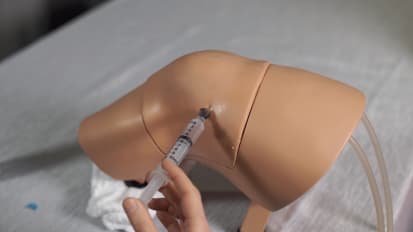 Video
Video
How to Do a Knee Injection
Carlin Senter, MD, and Elizabeth Marshall, MD, discuss how to properly perform a knee injection, focusing on the supplies needed and the proper anatomic landmarks, including a discussion of both the anterior and lateral joint lines approaches for injection.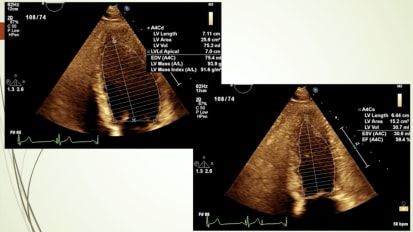 Video
Video
Introduction to Strain Imaging Echocardiography
Clifton Watt, MD, explains that echocardiography is one of the most common noninvasive tools used in cardiology to date, while strain imaging is a supplementary way to assess myocardial function. News
News
This AI Tool Helps Neurosurgeons Find Sneaky Cancer Cells
An AI-based diagnostic system reveals cancerous tissue that may not otherwise be visible during brain tumor surgery. News
News
Signs of Multiple Sclerosis Show Up in Blood Years Before Symptoms
In a discovery that could hasten treatment for patients with multiple sclerosis (MS), UC San Francisco scientists have discovered a harbinger in the blood of some people who later went on to develop the disease. Video
Video
Understanding Obesity: Essentials of Screening and Management in Primary Care
Weight management specialist Diana Thiara, MD, presents an update on obesity care, with guidance on using screening tools, having sensitive discussions, and selecting treatments – from dietary modifications to surgery. News
News
How a Cardiogenic Shock Rapid Transfer Protocol Enables Lifesaving Patient Care: Case Study
UCSF has a rapid transfer protocol in place, which includes immediate access to a critical care cardiologist, expedited triage and a dedicated unit for patients transferring in for emergent care.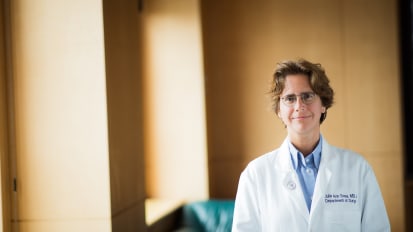 News
News
UCSF’s Julie Ann Sosa, MD, Named President-Elect of the American Thyroid Association
Julie Ann Sosa, MD, MA, FACS, endocrine surgeon and chair of the Department of Surgery at UC San Francisco, has been named president-elect of the American Thyroid Association (ATA). She was previously the ATA’s treasurer. News
News
UCSF Earns AHA Award for Improving Quality of Care for STEMI Patients
UC San Francisco has earned the American Heart Association’s Mission: Lifeline® Silver Plus Receiving Achievement Award for implementing specific quality improvement measures in treating patients who suffer severe heart attacks. News
News
UCSF Sheds Light on the Reasons Behind Sex Differences in Myocarditis
This study suggests mechanisms behind why myocarditis associated with cancer immunotherapies may occur more frequently in female patients. Document
Document
2019-20 Referral Services Guide
UCSF Health is recognized throughout the world for innovative treatments, advanced technology, collaboration among clinicians and scientists, and a highly compassionate team of patient care providers.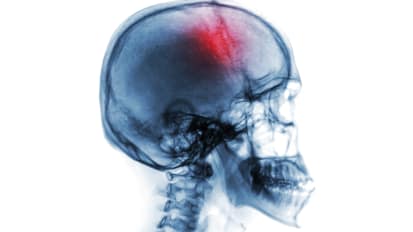 Video
Video
Medical Management of Seizures and Epilepsy
An in-depth look at the many medication options for patients with epilepsy, addressing safety issues such as driving, the success of surgery when meds don’t work, and other options, from thalamus stimulation and RNS to ketogenic diets for kids and adults.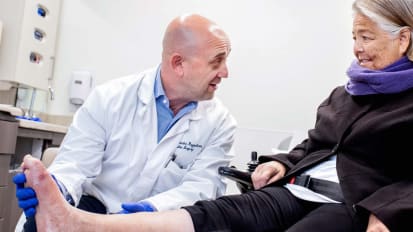 News
News
Peripheral Artery Disease: Early Intervention, Limb Preservation and Clinical Trials at UCSF
September is Peripheral Artery Disease (PAD) Awareness Month. More than 200 million people worldwide are living with PAD, including more than 20 percent of people age 65 and older. News
News
Endoscopic Removal of Benign Complex Colorectal Lesions Improves Patient Outcomes
Endoscopic mucosal resection (EMR) is a safe and effective alternative to surgery for benign complex colorectal lesions, according to research led by UCSF gastroenterologist Tonya Kaltenbach, MD. News
News
UCSF Surgeons Standardize Browlift and Hairline Surgery Using Photo Analysis
Facial Feminization surgery (FFS) involves numerous procedures designed to give the face a more feminine and harmonious appearance.

